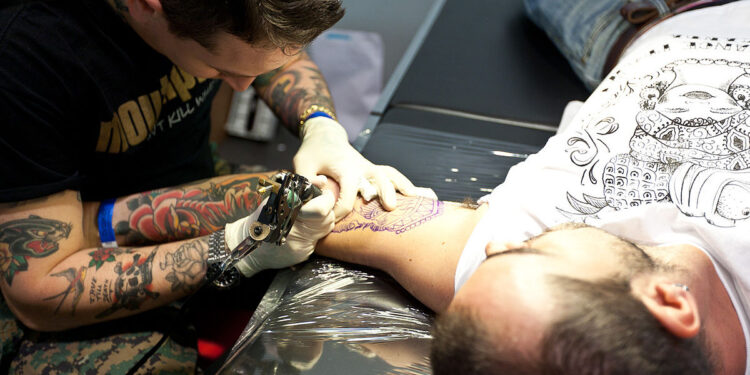For over two decades, tattoos were a hallmark of popular culture, proudly displayed by celebrities, athletes and influencers. Tattoo parlours flourished, with many boasting months-long waiting lists and thriving businesses. Yet today, the once unstoppable tattoo boom appears to be waning — and fast.
Across the UK and Europe, tattoo studios are quietly closing their doors. Some have filed for bankruptcy, unable to weather the sharp decline in clientele. “There was a time when we could barely keep up with demand,” says Jason Turner, former owner of Inkspire Studio in Manchester, which shut down earlier this year. “Now, the phones barely ring.”
The reasons for this shift are complex. Partly, it reflects changing attitudes among younger generations. Where Millennials once embraced tattoos as badges of individuality and rebellion, many members of Generation Z are leaning towards a new aesthetic ideal: clean, unmarked skin. Influencers now often promote minimalist, natural beauty standards, and workplaces — even in creative industries — are reportedly becoming less tolerant of visible tattoos once again.
Health considerations also play a part. Concerns about ink ingredients, skin ageing, and professional flexibility have made permanent body art seem less attractive to a new wave of young adults prioritising long-term options over impulsive choices.
“I got my first tattoo at 18, thinking it was cool,” says 25-year-old Emily Brooks, who is now undergoing laser removal. “But my tastes have changed, and I don’t want something permanent on my body anymore. Being ‘clean’ feels more empowering now.”
This new mindset has fuelled a booming market in tattoo removal. Laser clinics across Britain report record numbers of clients, often with long waiting lists of their own. Newer, less painful removal technologies have made the process more accessible and affordable.
“We used to see older clients looking to erase old mistakes,” says Dr. Priya Sandhu, director of the ClearSkin Laser Clinic in London. “Now, many of our patients are in their twenties and early thirties, and they are choosing to clear their skin proactively rather than live with something they no longer feel connected to.”
While tattoos will likely never vanish entirely — and for some, they will always be meaningful personal symbols — the culture that once celebrated heavily tattooed bodies is shifting. In its place, a fresh ideal is rising: one that associates natural, unmarked skin with flexibility, future opportunity, and authenticity.
In a world where change is constant, it seems, many prefer to keep their options — and their bodies — as open as possible.
newshub news




Recent Comments